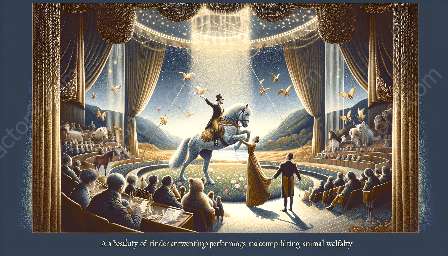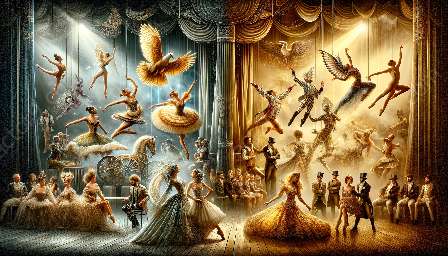The use of circus arts in therapy and rehabilitation has gained recognition for its positive impact on physical and emotional well-being. Integrating youth circus education into this context enhances the benefits, providing a holistic approach to healing and development.
The Therapeutic Potential of Circus Arts
Circus arts encompass a wide range of physical activities such as acrobatics, aerial skills, juggling, and clowning. These activities not only promote physical fitness and coordination but also offer unique therapeutic benefits.
Physical Rehabilitation
For individuals recovering from physical injuries or illnesses, circus arts provide a form of enjoyable exercise that encourages movement and flexibility. The focus on balance and strength in activities like acrobatics and aerial skills can aid in rebuilding muscle strength and motor skills.
Emotional Well-being
Engaging in circus arts fosters self-expression and creativity, which can be particularly beneficial for individuals facing emotional or psychological challenges. The sense of achievement and empowerment gained through mastering new circus skills boosts self-esteem and confidence.
Integrating Circus Arts into Therapy and Rehabilitation
Therapists and healthcare professionals have recognized the potential of circus arts as a complementary therapeutic approach. In rehabilitation settings, circus activities are incorporated into treatment plans to improve physical mobility and cognitive functions. Furthermore, the non-competitive and collaborative nature of circus arts fosters a supportive and inclusive environment, promoting social interaction and teamwork.
Youth Circus Education and Its Impact
Youth circus education plays a crucial role in promoting the therapeutic aspects of circus arts. By introducing circus skills to young individuals, it not only cultivates a passion for performing arts but also instills valuable life skills such as discipline, resilience, and teamwork.
Building Confidence and Resilience
Engaging in circus arts from a young age encourages children and adolescents to embrace challenges and develop resilience. Overcoming obstacles in learning new skills translates into confidence in facing real-life situations.
Enhancing Social Skills
Participating in group activities and performances within the context of circus arts fosters socialization and teamwork among young individuals. These experiences contribute to the development of empathy and communication skills.
Promoting Holistic Well-being
By integrating youth circus education with the therapeutic use of circus arts, a holistic approach to well-being is cultivated. The combination of physical exercise, creative expression, and social interaction provides a comprehensive platform for personal growth and rehabilitation.
Empowering Individuals
Through circus arts, individuals of all ages, including youths, are empowered to explore their potential and challenge perceived limitations. This empowerment extends beyond the physical realm and transcends into emotional resilience and mental well-being.
Fostering Inclusivity and Diversity
Circus arts celebrate individual differences and encourage inclusivity. The welcoming nature of circus communities promotes diversity and provides a supportive environment for individuals from various backgrounds and abilities.


































